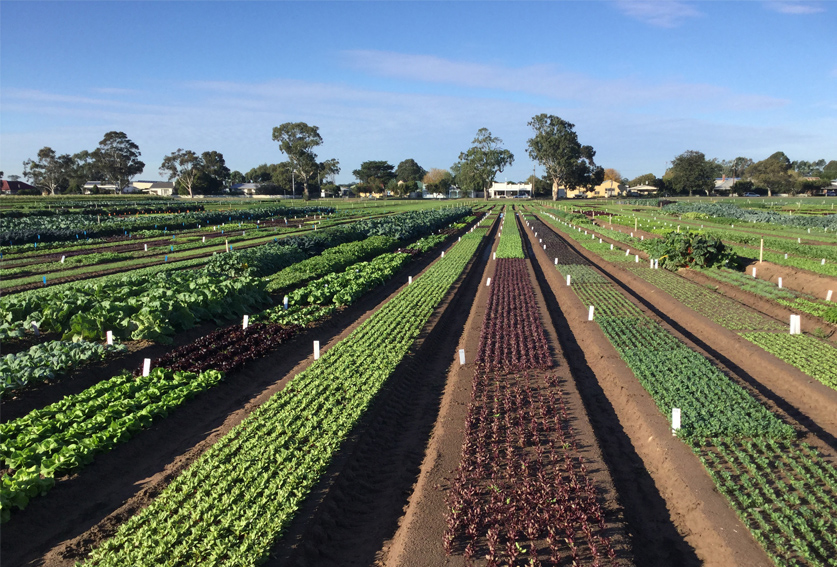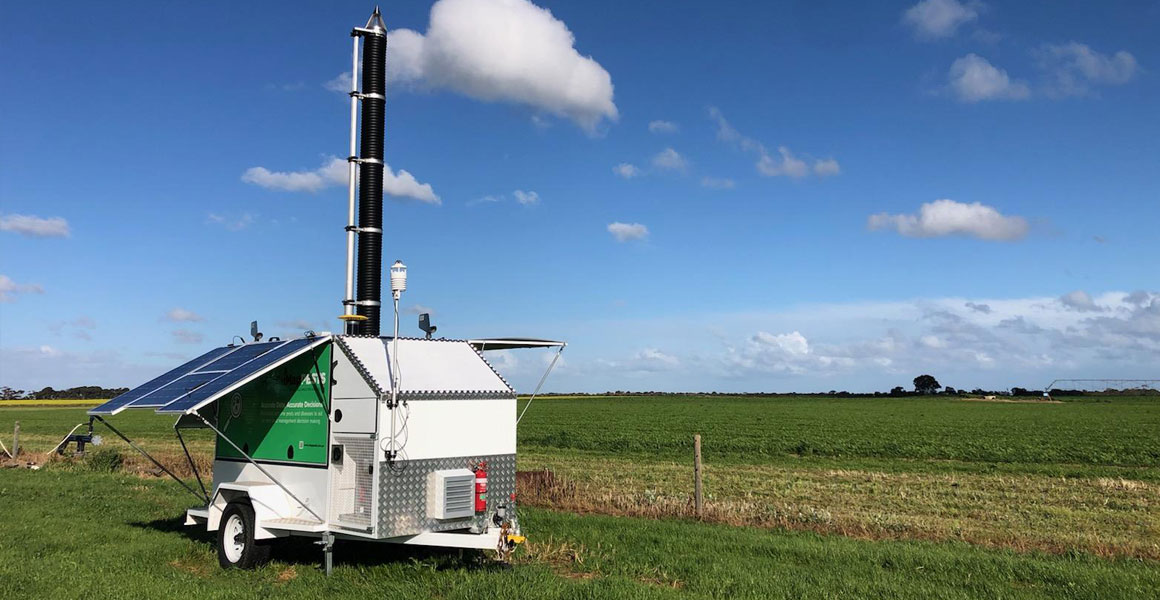
EGVID 2020 | Crop input demo by Omnia Specialties Australia
1 September 2020Help spread the message to #EatMoreAusVeg
8 September 2020The smart surveillance initiative, iMapPESTS, aims to report accurate and timely pest and pathogen data to industry to support pest management on-farm. With two mobile surveillance units, or ‘Sentinels’, now actively monitoring and watching over crops in the growing regions surrounding Adelaide, the project is generating data on airborne pests and disease-causing fungi.
One of the current unit trials sees a surveillance unit deployed within a vegetable growing setting, a first for the proof-of-concept project. Sentinel 2 is operating beside a crop of Brussels sprouts in Langhorne Creek, South Australia. The region, famed for wine production, features a diverse range of crops, with carrots and potatoes grown near the trial site.
The presence and prevalence of high priority targets, such green peach aphid, western flower thrips and Sclerotinia white rot, are being reported via the iMapPESTS website. Visitors to the data dashboard can select their target of interest to see how the daily numbers are tracking against weather. Weather data is presented in real-time, while target pest numbers for the previous week will be updated weekly.
Industry members are encouraged to see what is being trapped during these trials and provide feedback on how they might find the information useful. AUSVEG is keen to hear what you’re seeing in crop and how that compares with Sentinel trap samples.
Growers and agronomists who wish to be involved or kept up-to-date with the latest developments in the iMapPESTS program can register their interest either through the website or via iMapPESTS Engagement & Adoption coordinator, Shakira Johnson at shakira.johnson@ausveg.com.au.
The unit will be stationed in the area until early spring, before moving up into the Adelaide Hills for further trials in horticulture. Other Sentinels will be deployed in McLaren Vale, Virginia, the Barossa, and the Riverlands over the remainder of the year.
To learn more about the iMapPESTS program, read this article featured in Vegetables Australia — Winter 2020!

